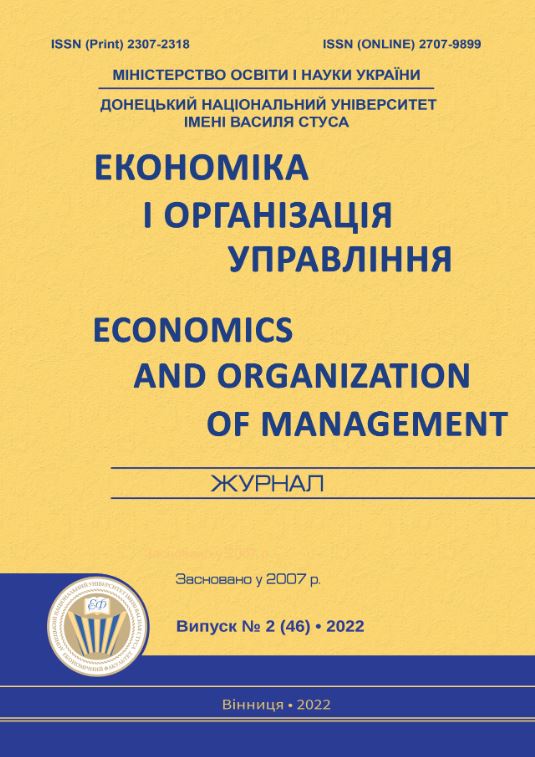Models of corporate management: global experience and problems of formation in Ukraine
DOI:
https://doi.org/10.31558/2307-2318.2022.2.7Keywords:
corporate sector; corporate governance; corporate organizational structures; corporate governance model; ownership; concentration of ownership; war; pre-war state of the financial systemAbstract
The concept and specificity of corporate governance models is defined. A comparative assessment of the most common types of corporate governance models, in particular: Anglo-American, German, Japanese, Family, or model W (the widely-held corporation model), which is presented in Anglo-Saxon countries and model B (the blockholder model), widespreaded in other countries of the world is carried out. The peculiarities of the national model of corporate governance formation were studied. It is substantiated that for the transitional financial system of Ukraine any direct copying of the models of industrially developed countries for the formation of a national system of corporate governance is absolutely impractical, however, it is important to take into account the world experience, mental peculiarities of the corporate sector formation and functioning, which in the complex will contribute to the economic growth of our state. The prospects for the development of the national model of corporate governance, which depends directly on the need to improve the system of functioning of the corporate sector of the Ukrainian economy and requires a number of problematic issues, namely: improvement basic principles and provisions of corporate governance; transformation of the state as a shares owner into an effective shareholder by creating a proper system of state regulation of the capital market; shadowing of the corporate sector to improve the procedure of disclosure and increase the level of transparency of operations; improvement of the organizational and management structure of joint-stock companies; formation of an effective corporate control system are outlined.
References
Атаманчук З.А. Проблеми та перспективи розвитку корпоративного управління в Україні. Бізнес Інформ. 2021. № 8. С. 184-189.
Шкільняк М.М., Апостолюк О.З. Навчально-методичний комплекс з дисципліни «Корпоративне управління» для студентів освітнього ступеню «Магістр» спеціальності «Адміністративний менеджмент», Тернопіль, 2016. 170 с.
Корпоративне управління в системі економічної безпеки: навч. посібник / З.Б. Живко, О.Р. Сватюк, М.І. Копитко; за заг. ред. З.Б. Живко. Львів: ЛьвДУВС, 2018. 456 с.
Іоргачова М.І. Українська модель корпоративного управління. Збірник наукових праць Черкаського державного технологічного університету. 2012. Вип. 30. Частина 1. С. 98-102.
Сарнавська М.І. Особливості формування корпоративного сектору в Україні. Юридичний науковий електронний журнал. 2016. № 6. С. 96-99.
Манжула Є. В. Особливості формування корпоративної власності в Україні. Економіка та право. 2015. Серія 18. Вип. 29. С. 22-27.
Коробка С. В. Корпоративне управління в Україні: проблеми та шляхи їх вирішення. Науковий вісник ЛНУВМБТ імені С. З. Гжицького. 2016. Т. 18. № 2. С. 80-83.
Іоргачова М. І. Проблеми корпоративного управління в Україні. Ефективна економіка. 2018. № 11. URL: www.economy.nayka.com.ua.
Чихачова М.І. Особливості становлення національної моделі корпоративного
управління в контексті приватизації. Актуальні проблеми економіки. 2009. № 7. С. 77-85.
Фаріон Н.О. Принципи корпоративного управління: міжнародний та вітчизняний досвід. Інвестиції: практика та досвід. 2015. № 22. С. 134-138.

